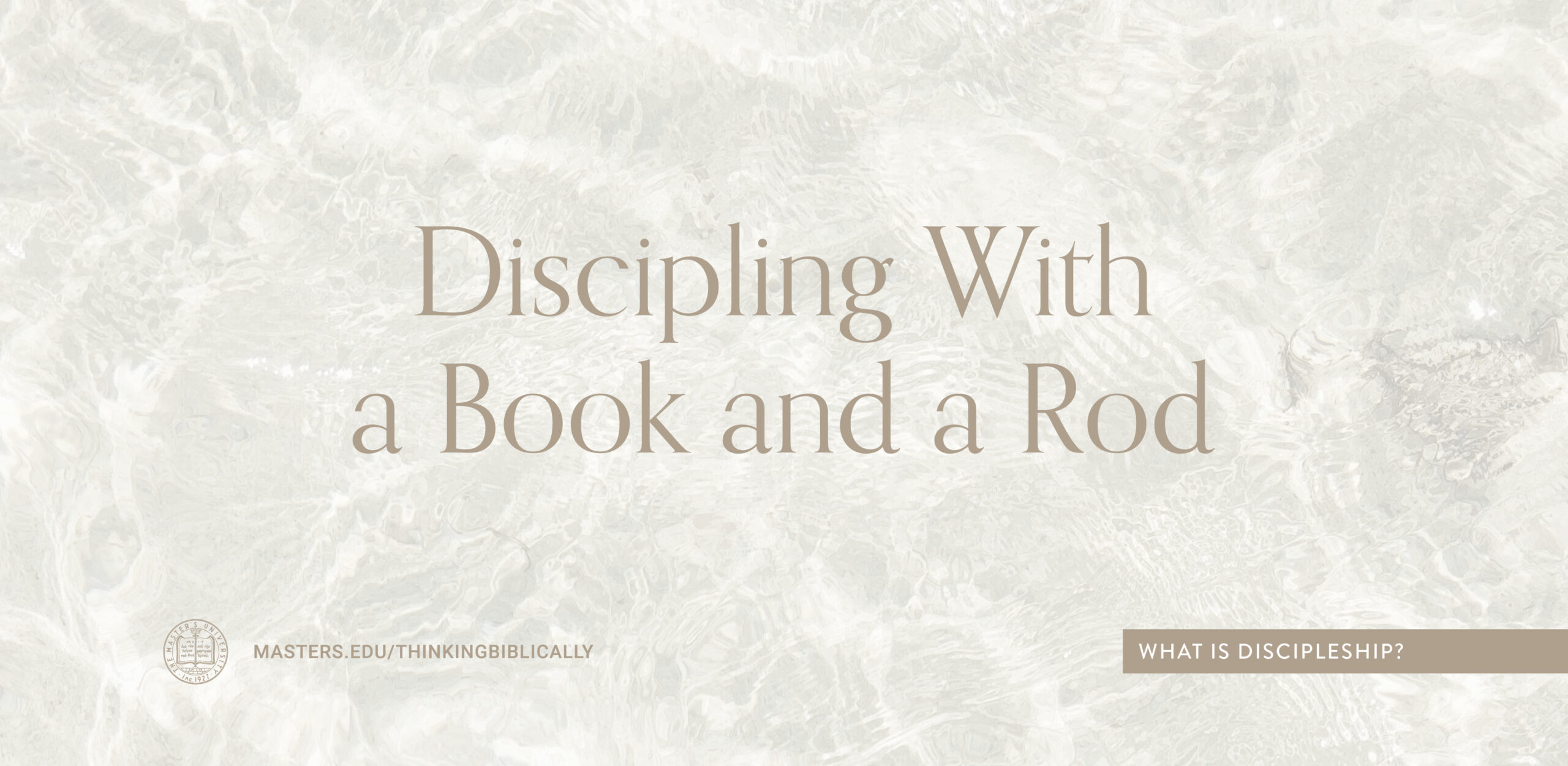
I have discipled many people through the years. One time I discipled a guy for three years, pouring my life into him. We eventually separated because he moved to another area. But later, I heard about him being involved in sinful things. And even though he had moved away, I still went to him and confronted him. I disciplined him and told him, “Out of sight is not out of mind. We have a relationship, and I want to confront the sin in your life.” And I called him to repentance.
In the past few posts, I have been laying out elements of effective discipling found in 1 Corinthians 4:14-21. Now we’ll be concluding our time in this passage with two ingredients of discipleship: teaching and discipline.
Paul at the end of verse 17 says, “I teach everywhere in every church.” When we wonder what the time we spend with our disciples should actually look like, part of the answer to that question is this: We teach them.
For years and years, I’ve discipled men by taking them through books of the Bible. I teach them Scripture. I teach them doctrine. I teach them theology. But I also love influential books.
This element of discipleship goes hand in hand with what I said last time about being an example. Teaching and example-setting go together.Teaching tells your disciple what their duty is. But your own example shows them that obedience is possible, and it shows them what obedience looks like. If all your disciple gets is teaching, they are going to look at their own life and say, “I can’t hack it.” But your own lived obedience will show them otherwise.
So teach principles. Teach precepts. Give people the Word of God. Give them good books to read. And then show them by your example that living by this teaching really is possible.
After verse 17, Paul continues on: “Now some have become arrogant, as though I were not coming to you. But I will come to you soon, if the Lord wills, and I shall find out, not the words of those who are arrogant but their power” (1 Corinthians 4:18-19).
Paul had poured his life into the Corinthians, but some of them became unruly after he left, thinking he might not come back. But Paul announces that he has every intention of returning, and that he is going to confront these arrogant people when he does. And at the end of the chapter he poses a question: “Shall I come to you with a rod or with love and a spirit of gentleness?” (1 Corinthians 4:21)
What is Paul saying here? He’s saying that even though he has been separated from the Corinthians for a little while, his relationship with them is not over. He’s planning to return, and he’s ready to confront them if he needs to.
We see, then, that there’s a sense in which a discipleship relationship is never over. People ask me, “How long do you disciple someone before you give them up?” I believe that once you’ve discipled someone effectively, you remain their discipler for the rest of your life.
This is why I included that story from my own life at the beginning; it shows that it is possible to have a lifelong discipling relationship, and it shows the value of that longevity. Now, you may not be able to follow up with everybody that you’ve ever influenced. But Paul gives us an example here of going out of our way to discipline people we have discipled.
So then — how do we disciple? We beget. We warn. We love. We set an example. We teach. And we discipline when discipline is necessary. These are the foundational elements that discipleship is made of. And I hope and pray that we will dedicate our lives to this work, not only because it is our duty, but also because it is a delight.
The dearest person in Paul’s life was whom? Timothy. And why? Because Timothy was his closest disciple. Do you want a lifelong friend? Do you want to know the joy of deep relationship? Discipleship is where it’s found.

The Master’s University and Seminary admit students of any race, color, national and ethnic origin to all the rights, privileges, programs, and activities generally accorded or made available to students at the school. It does not discriminate on the basis of race, color, national and ethnic origin in the administration of its educational policies, admissions policies, scholarship and loan programs, and athletic and other school-administered programs.
21726 Placerita Canyon Road
Santa Clarita, CA 91321
1-800-568-6248
© 2024 The Master’s University Privacy Policy Copyright Info
| Cookie | Duration | Description |
|---|---|---|
| cookielawinfo-checkbox-analytics | 11 months | This cookie is set by GDPR Cookie Consent plugin. The cookie is used to store the user consent for the cookies in the category "Analytics". |
| cookielawinfo-checkbox-functional | 11 months | The cookie is set by GDPR cookie consent to record the user consent for the cookies in the category "Functional". |
| cookielawinfo-checkbox-necessary | 11 months | This cookie is set by GDPR Cookie Consent plugin. The cookies is used to store the user consent for the cookies in the category "Necessary". |
| cookielawinfo-checkbox-others | 11 months | This cookie is set by GDPR Cookie Consent plugin. The cookie is used to store the user consent for the cookies in the category "Other. |
| cookielawinfo-checkbox-performance | 11 months | This cookie is set by GDPR Cookie Consent plugin. The cookie is used to store the user consent for the cookies in the category "Performance". |
| viewed_cookie_policy | 11 months | The cookie is set by the GDPR Cookie Consent plugin and is used to store whether or not user has consented to the use of cookies. It does not store any personal data. |